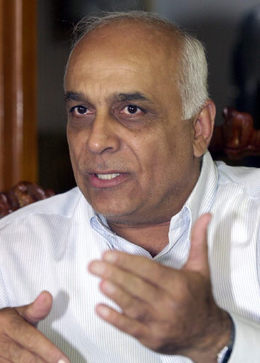 |
The U.S. has been unable to curb the Iraqi resistance, and the number of its fallen soldiers has been on the rise. Although it has been pumping more soldiers and military equipment in Iraq, the Iraqi resistance has been spreading, gaining more impetus, developing new methods and means. The U.S. administration has been facing increasing internal trouble that might cost it the majority in Congress. The latest polls concerning the U.S. elections scheduled for November 7 show that the democrats, who are unhappy with the invasion of Iraq, will come out with a majority in the legislature. The U.S. has shown a complete failure in controlling the internal Iraqi feuds. The Sunnis and the Shiites have been savagely killing each other through explosives and cold-blooded slaughter. Although some experts wouldn’t like to call it civil war, they believe that the road toward such an end is well-paved. Some people think that the U.S. is part of the killing that aims to fuel the feuds because they want to weaken the Iraqi people, and consequently the Iraqi resistance. That is, the U.S. is trying to save the lives of its soldiers through sacrificing Iraqi lives. Regardless of this accusation, the U.S. administration is embarrassed internally and externally. Internally, it is facing severe criticism from those U.S. citizens who oppose the war; externally, it is criticized by many nations, including nations that have troops in Iraq. Failures produce confusion and mutual internal accusations. The allies, the U.S. administration, and the Iraqi government have started exchanging accusations of inability, incompetence, and irresponsibility. The U.S. president appeared harsh on the Iraqi government, saying that the Iraqi prime minister lacks determination and resolve, and some U.S. officials accused the members of the Iraqi cabinet of corruption, the misuse of office, and the encouragement of some bloody Iraqi militias such as the Badr brigades, who are Shiites. The Iraqis have been rejecting the U.S. accusations, saying that the U.S. interferes in almost every little detail and leaves a very slim margin for the Iraqi government to initiate action. They say that the U.S. ambassador puts his nose into the details of Iraqi daily life, and doesn’t stop issuing orders. Even the Iraqi prime minister said publicly few days ago that he is the friend of the U.S. but not those in charge, in an effort from his side to assert his independence from the U.S. administration. It is true that the U.S. administration is dwindling in its Iraqi policy, which is now the main electoral issue in the U.S., but the Iraqis are paying the higher price. Geographically, the Kurds, who live in the northern part of Iraq, have their own semi-independent state; the Shiites are pushing toward the establishment of a federal Iraq, which might render them independent in the southern part of the country. The Sunnis will be left with the non-oil-rich middle of the nation. The threat that Iraq will be divided into three states is real. This is explained by the mass killings that both the Sunnis and the Shiites are carrying out against each other. There are efforts to foil the bloodshed between the two Muslim sects, and Saudi Arabia recently called for a conference embracing both Sunni and Shiite sides held in Mecca, the most sacred Islamic town. The two sides signed a charter in which they pledged to save Iraqi lives and blood, and expressed commitment to the Unity of Iraq. This conference eased tensions a bit, but the killings are still going on. Arab and other Middle Eastern countries are anxious about the idea of partitioning Iraq. Turkey doesn’t accept the idea because it rejects the establishment of a Kurd state. A Kurd state in Iraq might encourage the Turkish Kurds to fight for their own independent state. Jordan, Syria, and Saudi Arabia see in a Shiite state an element of instability in the area. For the Saudis, this Shiite state is expected to ally with Iran, which is accused of a military buildup so as increase its influence in the area; for the Syrians, the Shiite state might weaken the Sunnis in the middle, who are expected to ally with the Syrian regime. Under the pressure of these states, the U.S. might oppose the partition of Iraq particularly because they seek to weaken Iran. So what will happen? The Iraqi resistance is expected to rise in intensity, and it might widen geographically if Iran decides to support a Shiite resistance. The Sunni resistance has been growing, and Arab volunteers are flowing into Iraq to fight the U.S. The suffering in Iraq is imposing an atmosphere of frustration to the extent that the Iraqi government might disappear in favor of the Mujahideen (Iraqi fighters). If this happens, the Sunni resistance brigades and the Shiite militias might decide to forge a new situation of coexistence.





